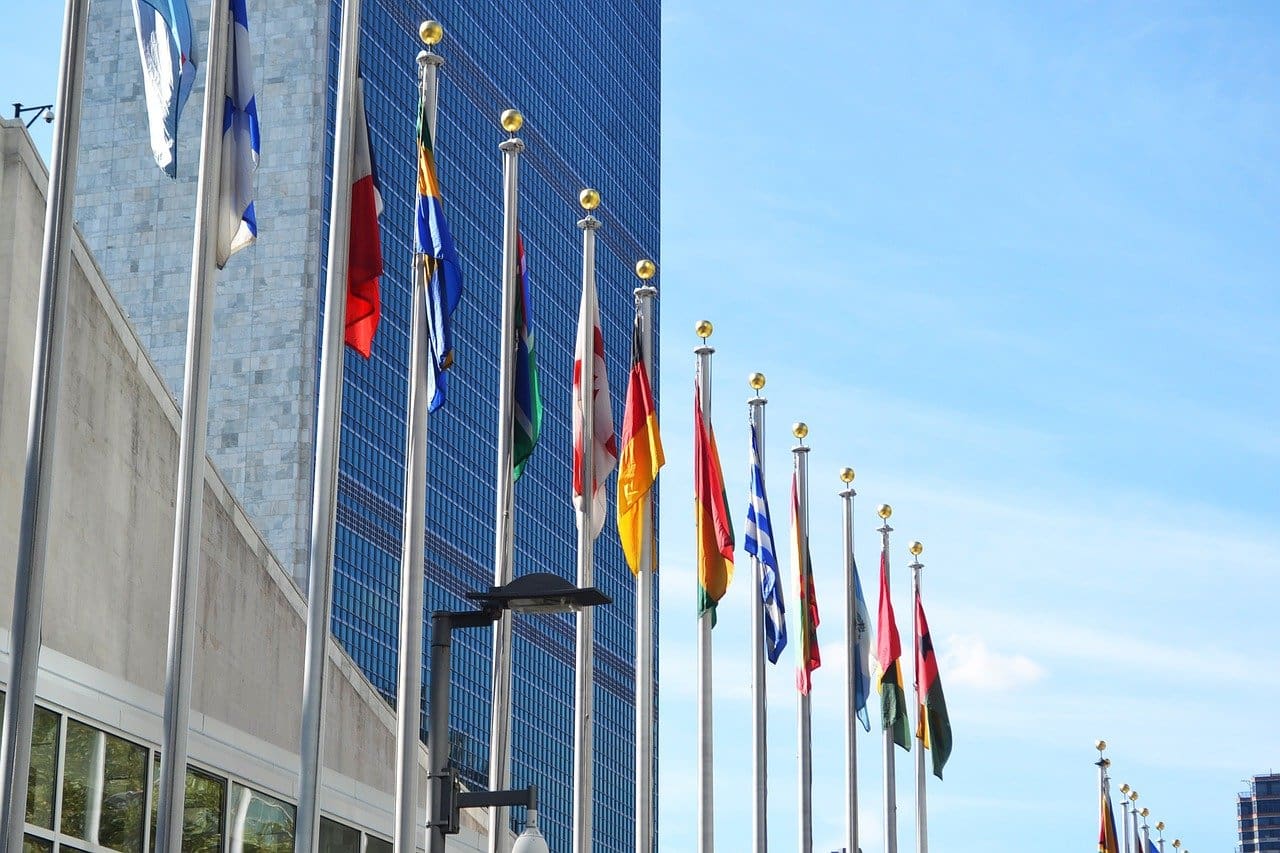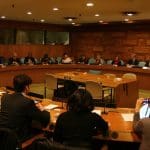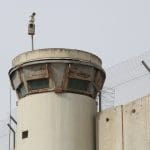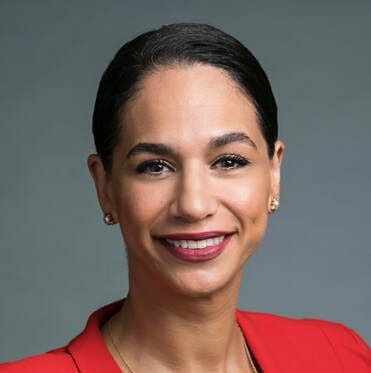
Overview
Faced with the glaring failure of the Washington-brokered “peace process” to secure Palestinian human rights, the Palestine Liberation Organization (PLO) has belatedly rediscovered the United Nations. But the PLO continues to overlook – not to say subvert – the potential of the Committee established by the General Assembly on the rights of the Palestinian people. Al-Shabaka Policy Advisor Noura Erakat examines this potential and compares it to the key role played by similar General Assembly committees in Namibia’s independence and against apartheid in South Africa. Erakat discusses the way in which the Committee shunned civil society participation in the aftermath of the Oslo Accords as well as the impact of internal Palestinian divisions on the Committee’s effectiveness. She concludes with recommendations for the different actors involved.1
Hobbled at the Start
In 1975 the United Nations (UN) General Assembly passed resolution 3376 establishing the Committee on the Exercise of the Inalienable Rights of the Palestinian People (“the Committee”) due to the lack of progress in fulfilling self-determination and the right to return to their homes and properties, among others.2
Within a year, the Committee submitted a proposal of implementation to the UN Security Council that included a two-phase plan to return and restitute Palestinian refugees displaced in 1948 and 1967; a timetable for the withdrawal of Israeli forces from the Occupied Palestinian Territories (OPT); the presence of a temporary peacekeeping force to protect Palestinian civilians; the temporary stewardship of the OPT by the UN and the Arab League before handing them over to the PLO; the cessation of all Israeli settlement activity; the recognition by Israel of the applicability of the Fourth Geneva Convention; and creating all means necessary to establish self-determination and independence of the Palestinian people.3 The United States vetoed the resolution. In response, the UNGA institutionalized the role of the Committee by establishing the UN Division for Palestinian Rights within the UN Secretariat in 1977 to provide substantive support.4
The question of Palestine was not unique for its specialized focus within the UN. The UN General Assembly had previously established other committees aimed at garnering international support to end foreign colonization. The two most prominent were the Special Committee on Apartheid, established in 1962 to end Apartheid in South Africa (Res. 1761), and the UN Council for Namibia, established in 1967 to be the legal Administering Authority of Namibia until independence (Res. 2248). Both Committees have long been dissolved, having achieved their mandate. By contrast, the Committee on the Exercise of the Inalienable Rights of the Palestinian People, now in its thirty-fifth year, continues to function but has not effectively mobilized the General Assembly to challenge the intransigent UN (read American) opposition to resolving the conflict in line with international law.
In fact, in its initial recommendations to the Security Council in 1976, the Committee wrote:
If the Security Council was unable to act because of a veto, the Committee should, in its subsequent report, recommend to the General Assembly that it carry out its own responsibilities in accordance with the Charter of the United Nations and in the light of precedents. It was also suggested that if Israel persisted in its refusal to implement General Assembly resolutions 194 (III) and 181 (II), this would constitute a violation of the conditions of its admission to the United Nations, which would then have to reconsider the matter.
However, far from raising controversial issues such as the legitimacy of Israel’s inclusion in the UN given its failure to meet its conditional terms of acceptance, the Committee has been notably conservative in fulfilling its mandate. In effect, its function has become more ceremonial than political. According to Joseph Schechla, Coordinator for the Housing and Land Rights Network, Habitat International Coalition, who attended the Committee’s meetings, “The Committee does not operate as a political body within the General Assembly. Their structure, in a way, is insignificant and of the member states none are particularly influential. There is no desire for this group to be effective.”5
Excluding Civil Society
Schechla places primary responsibility for the Committee’s ineffectiveness on civil society organizations that have failed to exert substantial pressure on its member states, unlike the way in which civil society lobbied member states of the UN Council for Namibia and the Special Committee on Apartheid. He adds that the African committees were a “productive outfit” and that were there a better understanding of the Committee’s potential, it would increase civil society efforts because “we have a standard that should be met.”
Wolfgang Grieger, Secretary for the Committee, comments that for the Committee to be more effective, NGOs need to make more of an effort to engage their diplomatic missions to the UN. He adds that NGOs must “…come speak, express your views, and participate.”
The Committee had existed for nearly a decade before it integrated civil society in a meaningful way. In 1983, the UN opened its doors to NGOs by affording them special consultative status to the Economic and Social Council. That same year, the Committee convened an International Peace Conference on the Question of Palestine that featured civil society organizations. It thereafter coordinated civil society participation in the form of formal regional bodies whose elections were facilitated by the UN.6This arrangement hit its first speed bump in the early 1990s when civil society actors used the space afforded by the Committee to condemn and reproach the diplomatic missions for their participation in the Oslo peace process. Consequently, in 1999, the Committee ended its formal relationship to civil society in a letter where it announced the cessation of UN-coordinated elections as well as financial support.
Grieger explains that the “regional committees took votes that contradicted the Committee mandates…so no more elections, no more meetings, you go to Geneva for human rights issues, and come to the Committee to proceed with the national rights discussions.”
Indeed, NGO participation in the Committee’s sponsored activities and conferences has been dismal since the Oslo peace process began in 1993. Grieger explains that after Oslo, civil society participation dropped by half. The reasons include a loss in financial support as well as internal Palestinian political strife, however the fundamental issue is that Oslo seemingly bifurcated Palestinian aspirations for self-determination into two tracks: a political track and a human rights one.
Bifurcating national and human rights
The divergence between civil society members and the diplomatic missions of member states falls along this divide where member states have supported the peace process and their NGO counterparts have supported mechanisms of accountability to redress human rights violations. Unlike other conflict resolution efforts, the U.S. and Israel have framed accountability and the peace process as mutually exclusive in the case of the Israel-Palestine conflict, thereby burying approaches that were successful in South Africa, Northern Ireland, and, to some extent, in the Balkans.
Complicating matters further is that after Hamas routed Fatah forces in the Gaza Strip in June 2007, Washington has provided the Ramallah-based Palestinian Authority (PA) with substantial diplomatic and financial support, affording it considerable influence over the official Palestinian political agenda. This has exacerbated the tension between the national and human rights tracks as well as between Palestinian civil society and the PLO at the UN.
Unfortunately, the discussion of national rights within the UN is based on the U.S.-controlled peace process and neither the Oslo Accords nor any subsequent agreements are predicated on established international law including the laws of occupation and human rights norms. Instead, the negotiations establish their own framework as the terms of reference. Moreover, the political track provides no redress for human rights violations because the PLO is beholden to the U.S., which is dismissive of a rights-based approach. Phyllis Bennis, a Senior Fellow at the Institute for Policy Studies and a consistent participant in the Committee’s international civil society meetings comments that PLO antagonism was directed at “the politics of the civil society organizations and not civil society organizations themselves, because the PLO wanted to keep its eggs in the U.S. basket.”
The Committee’s emphasis on national rights and the political track reflects its deference to the PLO, deemed the “sole and legitimate representative of the Palestinian people” since 1974 when the UN General Assembly passed Resolution 3236 and gave it observer status at the UN.7 “The Committee has a loyalty to the PLO position and decided to support the PLO in its signing of Oslo,” says Grieger.
However, whereas loyalty to the PLO has historically amounted to solidarity with the Palestinian people, this is no longer the case since Hamas’s legislative victory in 2006. Moreover, since the expiration of Mahmoud Abbas’s presidential term in January 2009, the expiration of his one-year extension, and its indefinite extension by the PLO Central Committee in December 2009, the Ramallah-based PA which is dominated by Fatah has operated without a democratic mandate and has depended almost entirely on the U.S. for financial support and legitimacy among UN member states.8 Furthermore, neither Hamas nor Fatah represent the Palestinians outside of the OPT.
Civil society actors, both Palestinian and global, have recently accused the PLO of failing to uphold its responsibilities at the UN because some of its most critical decisions have reflected U.S. interests rather than national Palestinian aspirations. A case in point is the PLO’s handling of the Goldstone Report, the UN-sponsored investigation of Israel’s 2008-2009 winter invasion of Gaza. In late September 2009, Abbas withdrew Palestinian support for a vote in the Geneva-based UN Human Rights Council to send the report to the UN General Assembly where it could be underpinned by political action, including referral of the Report and its war crimes allegations to the International Criminal Court. According to media reports that emerged at the time, Abbas succumbed to intense U.S. pressure to table Goldstone in order to renew the Israel-Palestinian peace talks.9
Notwithstanding the absence of a functioning Palestinian National Council, Palestinian intellectuals, activists, advocates, grassroots organizations, and political parties, from within Israel, the OPT, the Arab world, and the global Diaspora rose in protest, even going so far as to demand Abbas’s resignation for impeding a process that could ultimately lead to war crimes tribunals and broader forms of Israeli accountability.10
The PLO worked frantically to conduct damage control and resume the process, but their resolve was short-sighted. After the Goldstone Report moved from the Human Rights Council to the General Assembly, the PLO failed to curry support for a meaningful resolution, partially in deference to U.S. preferences, and the Goldstone Report made its way back to the Human Rights Council in Geneva.11 The Council established a Committee of Independent Experts charged with assessing the adequacy of the ongoing domestic investigations in Israel and the OPT. In October 2010, the Experts issued a report finding that both Israeli and Palestinian investigations were inadequate but failed to make substantive recommendations to rectify this shortcoming, including referring the Report to the International Criminal Court for investigation.12
Instead, under the direction of the PLO, the Committee afforded Israel and the Palestinians another six months to continue and enhance their domestic investigations to be reviewed by the Human Rights Council in March 2011. However, absent guidance from the PLO and political will on the part of UN member states to achieve accountability, even the most thorough investigations will be rendered meaningless. If the PLO fails to prioritize redress for gross human rights violations committed during Operation Cast Lead over possible political gains, justice will remain an elusive goal, especially for the Palestinians residing in Gaza.13
The Onus for Achieving Change
The internal political divergence has had tremendous costs for the Palestinian movement for self-determination. It has stalled the Committee’s work, which has also suffered from the lack of the strength and momentum afforded by international civil society. Yet the Committee has considerable potential: The General Assembly provides several options for advancement of Palestinian rights as the cases of the Committees on Namibia and South Africa well demonstrate.
The most notable option available to the Committee is the Uniting for Peace precedent. In November 1950, the UN General Assembly adopted Resolution 377, entitled “Uniting for Peace,” in response to the former Soviet Union’s strategy to veto any resolution intended to assist the Republic of Korea against military aggression launched by North Korea. At the behest of the U.S. representatives to the UN, the General Assembly established itself as a protectorate of international peace and security pursuant to Article 14 of the Charter, and resolved
… [T]hat if the Security Council, because of lack of unanimity of the permanent members, fails to exercise its primary responsibility for the maintenance of international peace and security in any case where there appears to be a threat to the peace, breach of the peace, or act of aggression, the General Assembly shall consider the matter immediately with a view to making appropriate recommendations to Members for collective measures…to maintain or restore international peace and security. 14
In a 2003 address before the Committee’s Commemoration of the International Day of Solidarity with the Palestinian People, Bennis noted that the General Assembly had employed Resolution 377 twice in the recent past: once to urge an end to threats against President Yasser Arafat’s life (Res. 10/12, 2003) and once to call on Israel to stop and reverse construction of its Annexation Wall (Res. 10/13, 2003).
Today, civil society members are urging the Assembly to invoke this precedent in order to demonstrate opposition to the U.S.’s intransigent obstruction within the UN Security Council of measures aimed at protecting Palestinians, holding Israel to account, and affirming the applicability of international law and human rights norms to the conflict. According to Jennifer Lowenstein, University of Wisconsin-Madison Professor and regular participant in the Committee’s international civil society meetings, the PLO Mission to the UN has discouraged these interventions. In response to her address to the 2007 Conference in Brussels wherein Lowenstein chastised President Abbas’s alliance with the U.S. and Israel against Hamas, a PLO representative allegedly called her “indecent” and proclaimed that she “had no right to speak on behalf of the Palestinians.”
Rania Madi, Badil’s Geneva-based consultant and long-time participant in international civil society meetings, adds that this attitude is precisely what diminished civil society participation in the international meetings. Madi, who was one of very few civil society representatives to the 2008 and 2009 meetings, comments “it would be advantageous to bring civil society in democratically rather than exclude them from the process.”
The Committee has the potential to mobilize the General Assembly as a genuine and effective alternative to the UN Security Council. Its effectiveness is contingent upon the PLO’s willingness to leave the Washington-dominated political track and challenge the U.S.-imposed impasse at the UN as a result of its many Security Council vetoes. At the very least this requires that the PLO achieve a unity government and reconcile its aspirations for statehood with its duty to protect Palestinians from systematic human rights violations.
Ironically, perhaps, the onus for achieving such change rests on the very civil society actors who have been shunned from the process. Their task is to advocate for a reconciliation of the national and human rights tracks from within the Committee rather than oppose its seeming appropriation by Washington from without. Otherwise, civil society risks allowing a permanent shift of international attention away from Israel’s systemic human rights violations and its American-afforded impunity, to an internecine Palestinian political rivalry. In effect, civil society could become a part of the problem rather than fulfill its vibrant potential to uphold international law and human rights norms in the attainment of a viable solution.
- A version of this policy brief was published by Badil. ↩
- http://unispal.un.org/unispal.nsf/0/B5B4720B8192FDE3852560DE004F3C47. Original members of the Committee: Afghanistan, Cuba, Cyprus, German Democratic Republic, Guinea, Hungary, India, Indonesia, Lao People’s Democratic Republic, Madagascar, Malaysia, Malta, Pakistan, Romania, Senegal, Sierra Leone, Tunisia, Turkey, Ukrainian Soviet Socialist Republic and Yugoslavia. ↩
- http://unispal.un.org/UNISPAL.NSF/0/A7D4580DA4B4F0238525611E00668F4E. ↩
- UN Resolution 32/40 B (2 December 1977). In addition to providing substantive support to the Committee, the Division’s core functions included planning and organizing its international meetings and conferences, annually commemorating the International Day of Solidarity with the Palestinian People; preparing and disseminating publications; and liaising with civil society organizations active on the issue. ↩
- Schechla attended Committee meetings between 1986 and 1991 and again in 1999. ↩
- http://unispal.un.org/UNISPAL.NSF/0/6F71BD16D6273ABC052565C9005730E6. ↩
- The PLO was first recognized as the representative of the Palestinian people at the 1974 Rabat Summit Meeting where Arab states and the international community recognized it as such. ↩
- The Palestine Central Congress affirmed and extended President Mahmoud Abbas’s legitimacy as PA president until it becomes possible to hold presidential and Palestinian Legislative Council elections (15-16 December 2009). ↩
- http://www.haaretz.com/news/abbas-aide-deferring-action-on-goldstone-report-was-a-mistake-1.6532. ↩
- http://www.haaretz.com/news/abbas-aide-deferring-action-on-goldstone-report-was-a-mistake-1.6532 ↩
- http://mideast.foreignpolicy.com/posts/2010/10/27/whither_goldstone_did_the_pa_kill_the_uns_gaza_report ↩
- http://www.jadaliyya.com/pages/index/177/committee-of-independent-experts_israel-investigation-bad-but-not-bad-enough ↩
- As a coalition of Palestinian human rights organizations put it: “For many years in Palestine international law, and the rule of law, has been sacrificed in the name of politics, and cast aside in favor of the peace process. This approach has been tried, and it has failed: the occupation has been solidified, illegal settlements have continued to expand, the right to self determination has been denied; innocent civilians suffer the horrific consequences. It is now time to pursue justice, and a peace built on a foundation of human rights, dignity, and the rule of law. In Justice Goldstone’s words, there is no peace without justice.” ↩
- http://www.un.org/en/documents/charter/chapter4.shtml. ↩
Noura Erakat is an assistant professor at George Mason University where she teaches in the legal studies, international studies, and human rights/social justice studies concentrations. An attorney and human rights advocate, she previously served as Legal Counsel for a Congressional Subcommittee in the House of Representatives and as an advisor on Middle East affairs for Congressman Dennis Kucinich. Noura comments regularly on US foreign policy and international law matters. She has appeared on Al Jazeera International, NBC’s “Politically Incorrect,” and Fox’s “The O’Reilly Factor.” Her writings have appeared in The Huffington Post, Berkeley Law School’s Journal for Middle East and Islamic Law, Counterpunch, Al-Majdal, and the Middle East Research and Information Project (MERIP).













